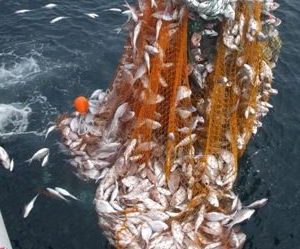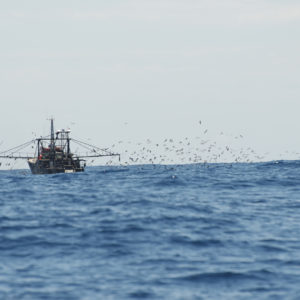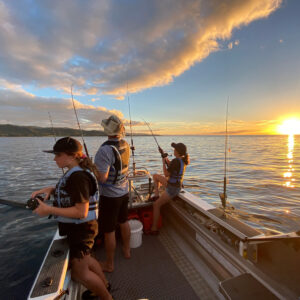When the Ministry for Primary Industries (MPI) failed to prosecute industrial fishing boat captains for dumping catch it blamed legal advice for the decision.
Now we are told that legal advice never existed.
Instead, MPI used misleading information and misdirected both the Minister and the public as to why blatant dumping of fish recorded on camera went unprosecuted.

The only reason this has now come to light is because the Chief Ombudsman’s Office has forced MPI to reveal the information after repeated attempts to get the truth of the matter by media, LegaSea and the public.
LegaSea spokesman Scott Macindoe says while the initial decision not to prosecute was bad enough, hiding the information compounds the problem.
“Clearly MPI is a ministry totally captured by industry, totally unable to operate in the manner required both by the law and by the public of New Zealand, and totally unable to manage New Zealand’s fisheries.”
LegaSea believes only a fully independent, external inquiry into MPI’s role in fisheries management will be enough to restore public faith in the Ministry.
“We already have three reports that demonstrate MPI’s unwillingness to prosecute when there is clear evidence of illegal activity. Now we have a Ministry unwilling and seemingly unable to own up to its own mistakes, instead it has to be forced to do the right thing. We know there are at least 14 more reports that independent researchers are eager to see which MPI is refusing to release and we can’t help but wonder what else is being hidden behind closed doors.”
“MPI has awarded the contract for putting cameras on boats to the industry it monitors, it has allowed an industry-owned entity to take over the day-to-day data collection from commercial fishers and the only assurance we receive from MPI is that it’s all going to be OK because MPI will act if there’s any sign of illegal activity. Unfortunately, MPI has demonstrated its inability to do what is right by the people of New Zealand, the true owners of the resource.”
TIMELINE OF EVENTS
May 2016
University of Auckland’s catch reconstruction report released.
New Zealand’s fishery catch of the last 50 years estimated at 2.7 times more than reported.
Report attacked by industry as being misleading.
LegaSea respond to the report calling for an urgent review of the QMS and of MPI’s role in overseeing the fishing industry.
EDS call for a wider review of NZ’s fisheries management system.
Government appoints Michael Heron QC to review decision not to prosecute those filmed dumping fish. LegaSea says the Heron review is not enough, only a full review of the QMS will be enough to allay public concerns about Ministry capture by the fishing industry.
The catch reconstruction report also refers to MPI’s own investigators’ concerns about the level of fish dumping for the first time.
MPI awards contract to place cameras on boats to monitor for illegal fish dumping and under reported catch of protected species to Trident, a company wholly-owned by the fishing industry.
LegaSea questions who is running New Zealand’s fisheries and urges the Minister to establish an independent inquiry with broad terms of reference.
September 2016
Heron report reveals MPI decision not to prosecute was “flawed”, recommends changes to the way MPI reacts in future.
The report also shows MPI were fearful of the reaction by the public and the commercial fishers themselves if they did prosecute.
The report also reveals senior MPI managers believe dumping of fish is so widespread half the inshore trawl fleet would go out of business if the law was enforced.
November 2016
MPI forced to admit that up to 80 percent of the cameras installed on snapper trawlers to police fish dumping failed during their first three months of use.
Footage from some vessels has been missing for up to a month.
December 2016
MPI forced to reveal that only four cases of fish dumping have been brought before the courts since 2009.
April 2017
University of Auckland researchers reveal MPI refuses to release information relating to 14 more operations that detail the Ministry’s investigations into reporting and fish dumping.
MPI’s relationship with industry questioned further after it is revealed MPI has outsourced administration and data management for large parts of its daily activity to a company wholly-owned by the fishing industry.
The Ombudsman’s Office has forced MPI to reveal that the legal advice it relied on to avoid prosecuting those industrial fishers filmed dumping fish doesn’t exist and never had.
For more information please contact:
Paul Brislen
[email protected]





